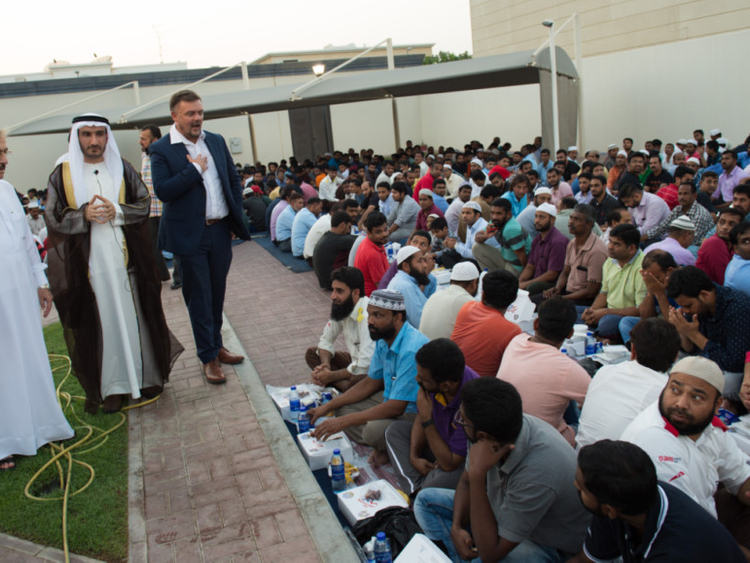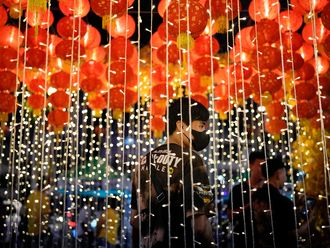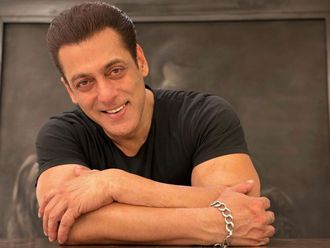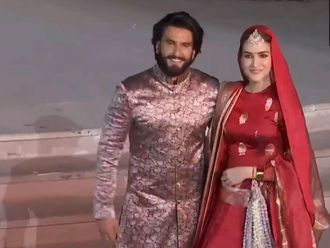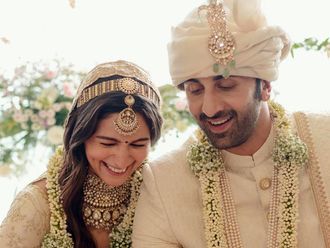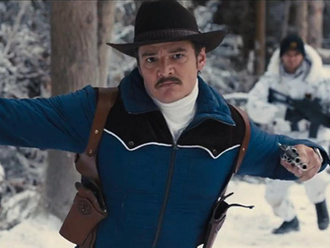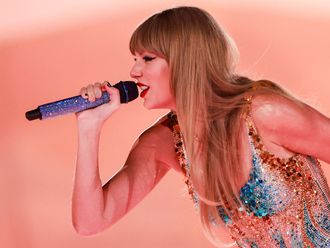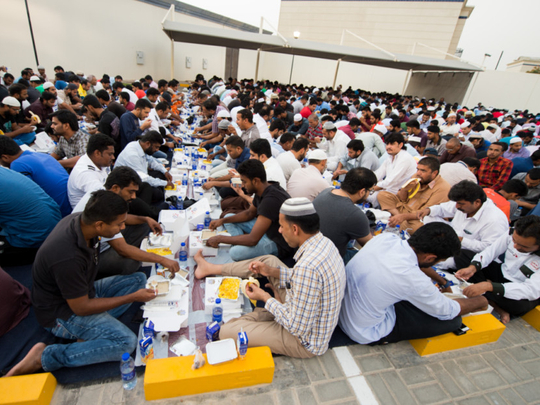
Dubai: Non-Muslims can experience an informal community iftar while learning about Ramadan and Islam at Al Farooq Omar Bin Al Khattab Mosque and Centre in Dubai, which hosts 1,300 to 1,500 workers daily for iftar.
Outside Ramadan, the mosque is popular with newcomers to Dubai and tourists marvelling at its architecture — inspired by Turkey’s Blue Mosque — and learning about Islam.
During Ramadan, the mosque, located in Al Safa, also welcomes curious tourists and non-Muslims — be it random walk-ins or arranged visits — who want to learn more about the month of fasting.
Recently, some staff from the Italian consulate visited the mosque, built as a gift to worshippers from prominent Emirati businessman Khalaf Al Habtoor, who funded the project. Staff from Emirates International School (EIS) in Dubai have also been visiting to see how iftar is held there.
Arranged in neat rows, workers take their place inside an air-conditioned and carpeted iftar tent in the mosque compound, close to sunset time. When the tent is full — it almost always is — the surplus visitors are hosted outside the tent. Arranged on clean plastic sheets are paper boxes containing iftar meals — biryani, fruits, harees, yoghurt, dates, juice and water. Sitting at ease cross-legged, they patiently wait for the sunset call to prayer to ring out from the pencil-shaped tall minarets of the mosque, signalling the end of the day’s fast. After eating their full and performing ablution, workers stream into the giant mosque to offer the sunset prayer in congregation, before dispersing.
No one pays a single dirham at the iftar, sponsored by the Habtoor Group. The scene is typical of many mosques in the UAE and the wider Muslim world in Ramadan.
David Hicks, principal of EIS - Jumeirah, said he was impressed by the community spirit at iftar. During a brief interaction with the workers there recently, he said that as a Christian, it was an opportunity for him, and other non-Muslims, to see how iftar is held in the UAE and learn more about the Muslim faith. He said the diversity of faiths and cultures at EIS, and in the UAE, is an ongoing opportunity for greater understanding and harmony between peoples, which is needed now more than ever.
There are also daily religious lectures by Dr Shaikh Fares Al Mustafa, the religious and cultural affairs adviser of the mosque and its imam (prayer leader), which are broadcast live on YouTube. The Ramadan campaign also includes daily Instagram episodes of the“Ramadan Harvest” series. Also, there is live streaming of some prayers, such as the late night prayers held in the last nights of Ramadan, which are considered especially holy.
Dr Shaikh Al Mustafa said Ramadan opens an added window for non-Muslims to visit the mosque and learn about Islam’s message of peace.
The lectures and videos can been seen on Instagram accounts @dr.faresalmustafa and @alfarooqmosquecentre; as well as on the YouTube channel Alfarooq mosque (www.youtube.com/user/AlFarooqCentre)


